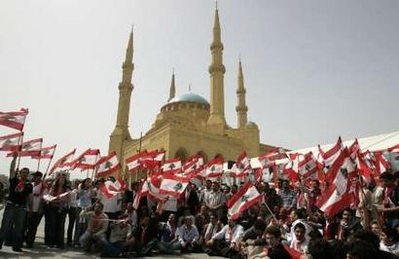 By CLAUDE SALHANI, UPI Contributing Editor, WASHINGTON, March 31 (UPI) — As expected, there were no surprises at the Arab summit in Damascus that ended Sunday without any breakthrough regarding the Lebanese presidential crisis. If anything came out of the summit — boycotted by 11 of the 22 members of the Arab League — it is the obvious and deep divisions that remain between what is perceived as the pro-Washington countries and Syria. Supporting the Beirut government — and the U.S. position — are primarily Egypt, Jordan and Saudi Arabia, whose leaders did not attend the summit in Syria, preferring to be represented by lower-ranking ministers in protest against Syria’s role in Lebanon.
By CLAUDE SALHANI, UPI Contributing Editor, WASHINGTON, March 31 (UPI) — As expected, there were no surprises at the Arab summit in Damascus that ended Sunday without any breakthrough regarding the Lebanese presidential crisis. If anything came out of the summit — boycotted by 11 of the 22 members of the Arab League — it is the obvious and deep divisions that remain between what is perceived as the pro-Washington countries and Syria. Supporting the Beirut government — and the U.S. position — are primarily Egypt, Jordan and Saudi Arabia, whose leaders did not attend the summit in Syria, preferring to be represented by lower-ranking ministers in protest against Syria’s role in Lebanon.
Perhaps the one surprise, strange as it might appear, is that the voice of reason from the Damascus summit was none other than that of Libyan leader Col. Moammar Gadhafi, who warned his fellow leaders that they risk being deposed much like former Iraqi President Saddam Hussein. "One day, you will see yourselves in a similar situation and at that time no one should blame (anyone) but himself because we did not work sincerely to build a strong and unified Arab nation," said the Libyan leader. "Each one of you hates others. Syria is not on good terms with its neighbors, while Libya has stronger ties with Italy than it has with Tunisia or Egypt," Gadhafi said at the opening of the two-day summit. "No notable development has come out of this summit, as has always been the case with previous summits," said Gadhafi to journalists covering the event. "The most important point of the summit is the fact that we have recognized the existence of divisions, problems, and animosity between Arab countries and that we have to find the means to overcome these problems," he said.
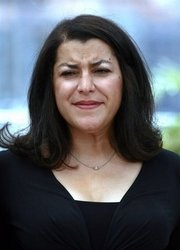 BEIRUT (AFP) – Lebanese authorities reversed on Thursday a decision to ban the prize-winning animated film "Persepolis," following an outcry and claims the measure was aimed at pleasing Iran and Shiite clerics. The general security department, which initially prohibited the film, said the ministry of interior, of which it is a part, had "decided to authorise the film’s distribution in Lebanon".
BEIRUT (AFP) – Lebanese authorities reversed on Thursday a decision to ban the prize-winning animated film "Persepolis," following an outcry and claims the measure was aimed at pleasing Iran and Shiite clerics. The general security department, which initially prohibited the film, said the ministry of interior, of which it is a part, had "decided to authorise the film’s distribution in Lebanon".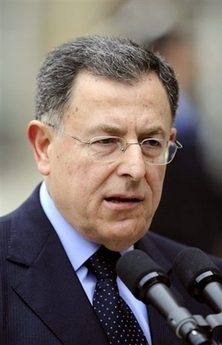 Lebanon’s prime minister accused Syria on Friday of blocking the election of a new Lebanese president and deepening the country’s 16-month political crisis through its interference in the country’s internal affairs. Fuad Saniora said Lebanon decided earlier this week to boycott this weekend’s Arab summit in the Syrian capital of Damascus because Beirut is usually represented by its president.
Lebanon’s prime minister accused Syria on Friday of blocking the election of a new Lebanese president and deepening the country’s 16-month political crisis through its interference in the country’s internal affairs. Fuad Saniora said Lebanon decided earlier this week to boycott this weekend’s Arab summit in the Syrian capital of Damascus because Beirut is usually represented by its president.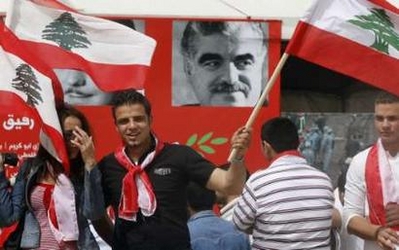 United Nations, Former Lebanese prime minister Rafik Hariri was assassinated by a criminal network that is linked to some other terrorist attacks in Lebanon, the chief investigator said Friday.\In his first report to the U.N. Security Council, Daniel Bellemare said the first priority of the investigating commission he heads is to gather more evidence about the "Hariri Network," its scope, the identity of all its participants, their role in other attacks and links with people outside the network.
United Nations, Former Lebanese prime minister Rafik Hariri was assassinated by a criminal network that is linked to some other terrorist attacks in Lebanon, the chief investigator said Friday.\In his first report to the U.N. Security Council, Daniel Bellemare said the first priority of the investigating commission he heads is to gather more evidence about the "Hariri Network," its scope, the identity of all its participants, their role in other attacks and links with people outside the network.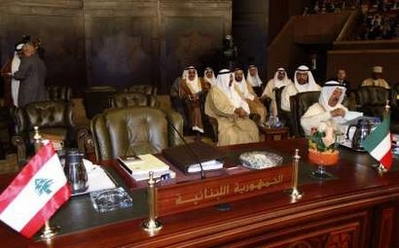 DAMASCUS (AFP) – Syrian President Bashar Al-Assad denied on Saturday meddling in Lebanon as he hosted an Arab summit boycotted by half of the region’s leaders, many of whom blame Damascus for the political crisis in Beirut. I would like to make a point with regards to Syrian interference in Lebanon. It is the contrary which is true because pressure has been exerted on Syria for over a year to interfere in Lebanon’s affairs" but we have refused to do so, Assad said.
DAMASCUS (AFP) – Syrian President Bashar Al-Assad denied on Saturday meddling in Lebanon as he hosted an Arab summit boycotted by half of the region’s leaders, many of whom blame Damascus for the political crisis in Beirut. I would like to make a point with regards to Syrian interference in Lebanon. It is the contrary which is true because pressure has been exerted on Syria for over a year to interfere in Lebanon’s affairs" but we have refused to do so, Assad said.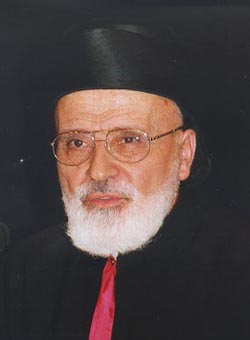
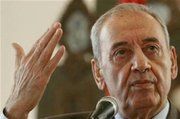
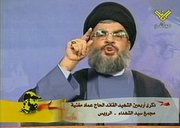 BEIRUT (Reuters) – Hezbollah said on Monday talks for a prisoner swap with Israel were continuing despite the killing of its top military commander in an assassination the Lebanese guerrilla group blamed on the Jewish state. Sayyed Hassan Nasrallah reiterated his pledge to take revenge for the February 12 assassination of Imad Moughniyah. "We shall pick the time, the place, the punishment and the means and method," Nasrallah said.
BEIRUT (Reuters) – Hezbollah said on Monday talks for a prisoner swap with Israel were continuing despite the killing of its top military commander in an assassination the Lebanese guerrilla group blamed on the Jewish state. Sayyed Hassan Nasrallah reiterated his pledge to take revenge for the February 12 assassination of Imad Moughniyah. "We shall pick the time, the place, the punishment and the means and method," Nasrallah said.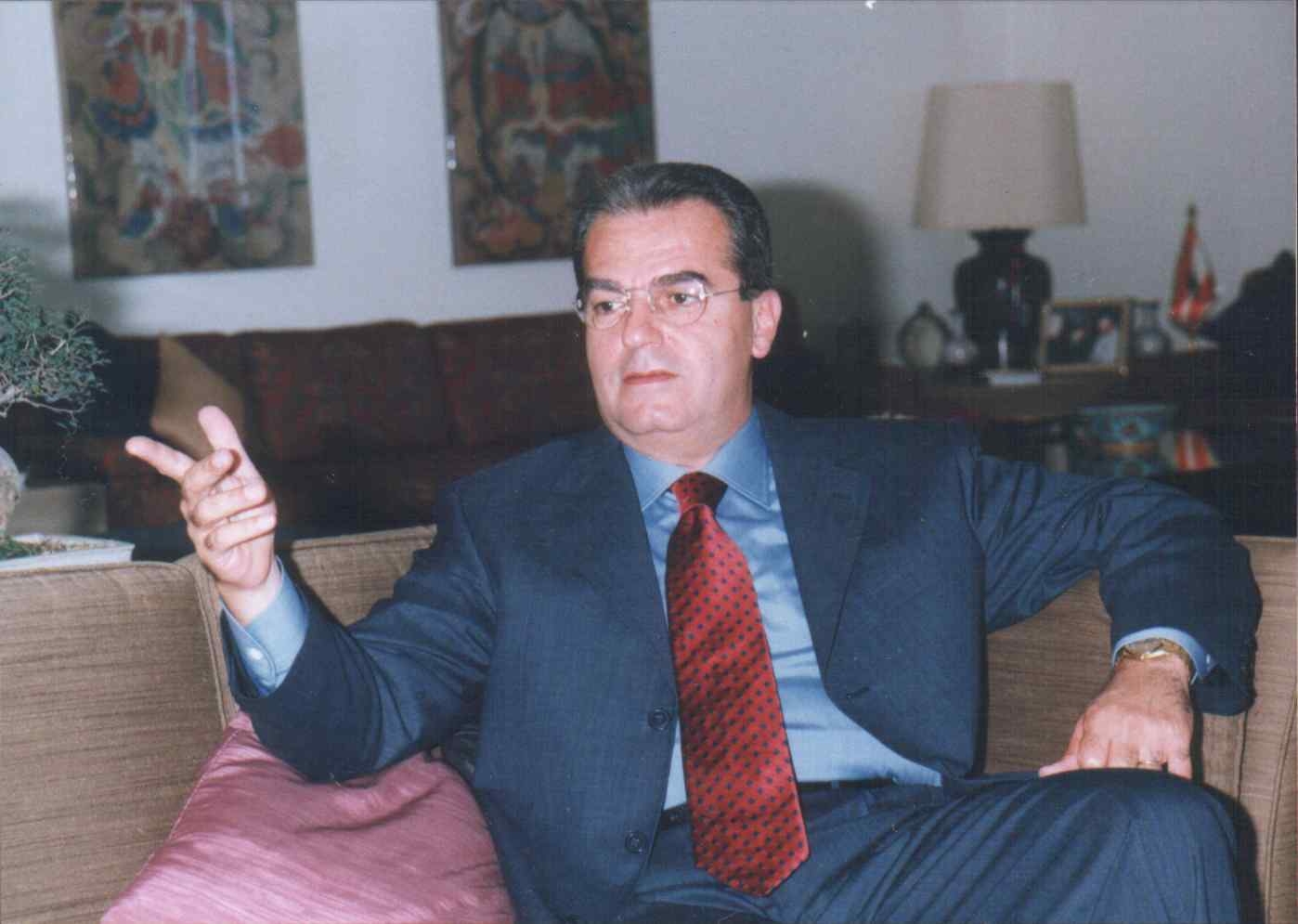
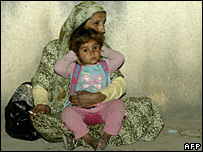 Clashes have broken out between Palestinian factions in a refugee camp in southern Lebanon. The fighting was between members of the Fatah faction and an Islamist group called Jund al-Sham. It took place in the densely populated Ain al-Hilwe refugee camp, which is located on the outskirts of the southern city of Sidon. Fighters launched rockets and exchanged gunfire in the middle of the camp, causing dozens of civilians to flee. Lebanese and Palestinian officials said one Fatah member was killed and four others wounded, the Associated Press news agency reported.
Clashes have broken out between Palestinian factions in a refugee camp in southern Lebanon. The fighting was between members of the Fatah faction and an Islamist group called Jund al-Sham. It took place in the densely populated Ain al-Hilwe refugee camp, which is located on the outskirts of the southern city of Sidon. Fighters launched rockets and exchanged gunfire in the middle of the camp, causing dozens of civilians to flee. Lebanese and Palestinian officials said one Fatah member was killed and four others wounded, the Associated Press news agency reported. 


